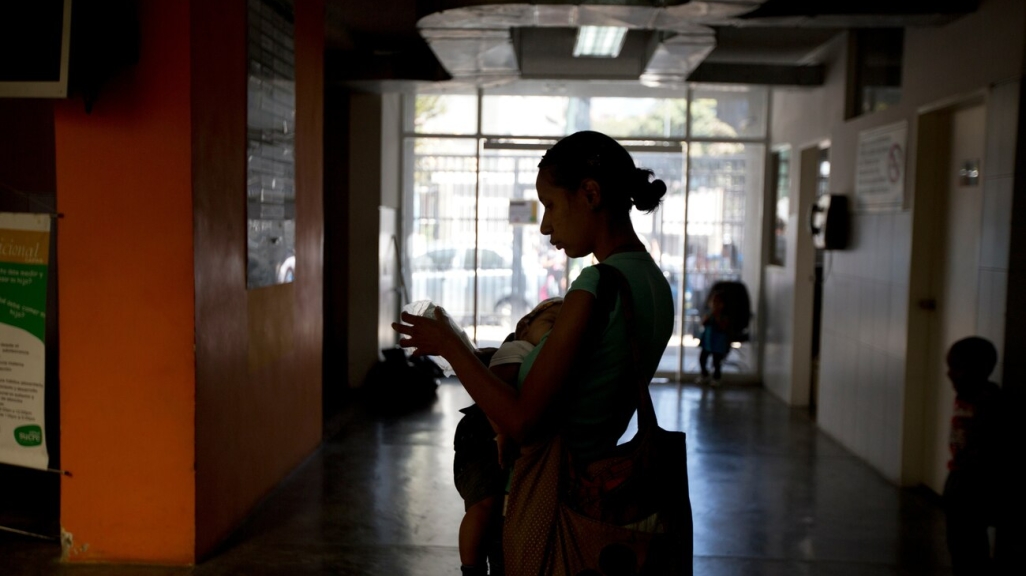Viewpoint: The Moment Is Right to Rectify the Women's Healthcare Crisis in Venezuela
Viewpoint: The Moment Is Right to Rectify the Women's Healthcare Crisis in Venezuela
Access to basic reproductive health products has been limited for years. But there's a new opportunity to help Venezuela’s women.
As a teenager, going to the gynecologist felt like my last resort. Despite experiencing frequent discomfort as well as paralyzing pain during periods, it took getting a referral from another doctor to get over the stigma and work up the nerve to go. It was comforting to get a diagnosis and a solution—a prescription for contraceptives. It was my best treatment option for polycystic ovarian syndrome.
There was just one problem: contraceptives in Venezuela had become part of a list of goods deemed nearly impossible to find. But even if that created obstacles for me back when I was 15, I was fortunate enough to be able to find ways around the hurdles to access what I needed. Many of Venezuela’s poorer women don’t share that luck.
Human Rights Watch has considered the Venezuelan crisis as a humanitarian catastrophe of international proportions for years now. The collapse of the economy coupled with the country’s decisive turn towards authoritarianism sparked the exodus of over 7 million people since 2015. While the impact of chavismo’s destructive practices is felt across the population, the suffering of women—particularly poor women—has been acute and frequently overlooked.
In the country, women have faced an ongoing lack of access to basic medical and sanitary products since 2015 when the government eliminated its preferential exchange rate for pharmaceutical products. Until that point, a combination of price controls and the preferential rates allowed the Venezuelan government to meet high demand for pharmaceuticals at low prices. While some pharmaceuticals had already been driven out of the market by the government’s discretionary and questionable methods for assigning the rates, problems deepened with a decline in oil prices in 2015. At that point, the Maduro administration kept its draconian price controls but eliminated the preferential exchange rates, leading the country’s pharmaceutical industry to collapse and sparking as much as a 70 percent shortage in essential medicines. The sector went from selling 714 million units of medicine in 2014 to as little as 180 million units in 2021—a drop of 75 percent.
The price controls ushered in an era of black markets and long lines. According to the Asociación Venezolana para Una Educación Sexual Alternativa, an organization dedicated to advocating for the rights of women and girls, 82 percent of the country’s pharmacies reported that they did not have oral contraceptives at the height of the supply crisis in early 2018.
Though price controls were lifted 2019, the destruction wrought on the pharmaceutical sector drove the price of contraceptives through the roof. The high price coupled with a de facto dollarization of prices—but not of wages—means many women can’t afford reproductive health products. Per AVESA, 30.7 percent of venezolanas who were sexually active or facing an unwanted pregnancy reported not being able to get them. To put it into perspective, the figure is triple the rate of women in Latin America and the Caribbean who said they couldn’t get these products. Venezuela’s teenage pregnancy rate is now double the regional average. As of 2016—the last year for which the government provided this type of data— maternal mortality rates had grown by 65 percent.
Still, despite all of this grim news, there is a new opportunity to amend some of the damage done by these policies in the form of a deal to unfreeze more than $3 billion in Venezuelan funds held in foreign banks. The Venezuelan government and the opposition have asked the UN to administer the funds, with the priorities outlined so far including improving the electric grid and education, as well providing for disaster relief related to recent flooding. But addressing women’s health challenges goes hand in hand with the humanitarian challenges driving an exodus. Providing women with low cost generic contraceptives and partnering with local organizations to offer factual support to poor and vulnerable women could go a long way when it comes to empowering women to continue their education, improving health outcomes, and boosting productivity.
With this opportunity, there is no more time to waste. Access to reproductive and sanitary products doesn’t just affect women’s ability to lead normal, healthy lives. It has the potential to be a life or death issue for young Venezuelan women. Though I had the good fortune to have the resources to pay for vital medication, a public policy failure placed reproductive care out of reach for those who needed it the most: poor women and girls. The consequences are dire, and the stakes are too high to look away.
Patrizia Troccoli is a graduate student at Johns Hopkins SAIS, where she is pursuing an MA in International Relations with a focus on climate, development, and sustainability in the Americas.







